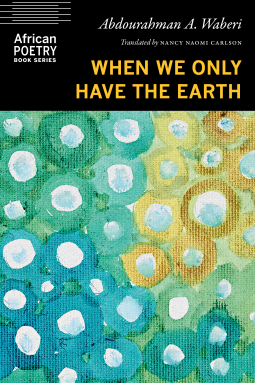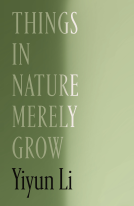
When We Only Have the Earth
by Abdourahman A. Waberi
This title was previously available on NetGalley and is now archived.
Send NetGalley books directly to your Kindle or Kindle app
1
To read on a Kindle or Kindle app, please add kindle@netgalley.com as an approved email address to receive files in your Amazon account. Click here for step-by-step instructions.
2
Also find your Kindle email address within your Amazon account, and enter it here.
Pub Date Mar 01 2025 | Archive Date Feb 28 2025
Talking about this book? Use #WhenWeOnlyHavetheEarth #NetGalley. More hashtag tips!
Description
Waberi, a nomad at heart, takes us on a whirlwind tour across North America, Africa, and Europe, daring us to love the earth “beyond all rational thought” and to “turn into earth, both literally and figuratively,” as we “turn from vanity, fears, and other pointless rustling.” These lyrical, playful, and moving poems urge us to look for the truth and beauty hidden in our daily lives, singing of Waberi’s own enduring love for our endangered planet and also, more forcefully, exhorting us to join him in the collective fight to save our planet from destruction.
Advance Praise
“In this wonderful collection we encounter a poet who moves deftly from the political to the intimate with an impressive sense of play. There is a tone to the work, carried over into this remarkable translation, of the studied, sharp, witty, and yet poignant ways in which French language writers approach the world. From Derrida (yes, I think of him as a poet) to the engagement of Nganang, we see a lineage and skill and craft that make for the uniqueness of this tradition, and certainly of the lyric work in this collection. Abdourahman Waberi invites us into a deeply felt and artfully wrought collection. We are enriched for reading it.”—Chris Abani, author of Smoking the Bible and Sanctificum
Available Editions
| EDITION | Other Format |
| ISBN | 9781496241351 |
| PRICE | $17.95 (USD) |
| PAGES | 66 |
Available on NetGalley
Featured Reviews
 Theresa D, Reviewer
Theresa D, Reviewer
I can’t say that I’m well equipped to judge poetry, let alone translated scholarly works, but I was really excited to see this publication translated to English and featuring a French/ Djiboutian scholar. I certainly can give a layman’s perspective on the art, but hope that a more critical eye takes the time to review it. Thanks to the publisher for access to the ARC. I appreciated the translator’s note by Nancy Naomi Carlson at the beginning. It provided some much needed context and helped me look for a tempo to each poem and appreciate some of the word choices (for example, I’m assuming the use of “raining cats and dogs” is replacement term used for American audiences).
I think this would be best experienced read out loud so I hope that an audiobook version is on the horizon, if not already in the works. I liked the poems that had an obvious (for me at least) rhythm, like in A Short Ballad to Lull the Horizon. Jordan Ifueko’s Raybearer series had songs or chants written that had a similar sort of cadence when written on the page. I’m wondering if there are similarities between Djibouti and Nigerian chants/ songs? Perhaps some additional information on the oral traditions of the region and how it would be experienced spoken vs. read would be a nice addition to the forward.
When We Only Have the Earth aims to cover interconnectivity across people, countries, and continents to show us how collective compassion for the world will quite literally save us. However, the execution of this collection didn’t work for me. While I understand the intent, I often found the movement through space and time to be unfocused, making it difficult to fully connect with the work. The poetry style itself wasn’t my favorite — many of the poems felt long and meandering, which diluted their impact. As a result, the themes in this didn’t resonate as strongly as they could have, leaving me uncertain about what to take away from them.
However, I found the second half of the collection more enjoyable, as it featured shorter, more direct poems that felt more immediate and engaging. The pictoem Afrokhoï Sapiens stood out to me — it was much more grounded and it was easy to follow the connectivity between these poems. My favorite poem overall was After All, which captured my attention in a way that much of the earlier work did not. It’s by no means a bad collection, but I think stylistically it will resonate more deeply with other readers than it did with me personally.






